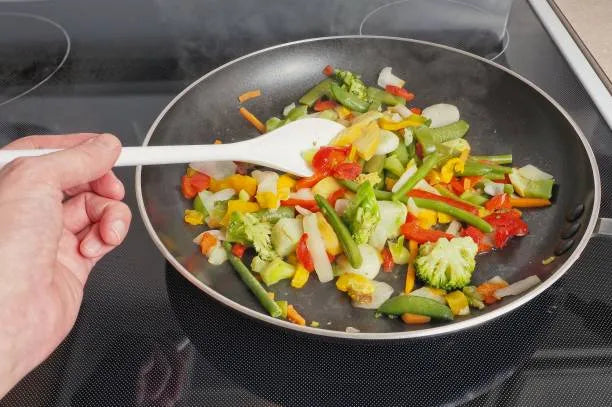
How to Avoid Harmful Chemicals in Non-Stick Cookware
Share
Non-stick cookware has become a kitchen staple for its convenience, but recent studies have raised concerns about the harmful chemicals that may be released during cooking. For many, the convenience of non-stick pans outweighs the potential risks, but it's important to understand how to choose safer alternatives. In this article, we’ll explore the dangers of harmful chemicals found in some non-stick cookware, and provide tips on how to avoid them for healthier cooking.
Understanding the Chemicals in Non-Stick Cookware
Many non-stick cookware items are made with a chemical called PTFE (polytetrafluoroethylene), most commonly known by the brand name Teflon. While PTFE itself is considered safe when used properly, concerns arise when the cookware is overheated. At temperatures above 500°F (260°C), PTFE can break down and release toxic fumes that can cause flu-like symptoms, often referred to as "Teflon flu." Additionally, many non-stick pans are coated with PFOA (perfluorooctanoic acid), a chemical linked to various health issues, including cancer.
Choose PFOA-Free Cookware
The good news is that many manufacturers have phased out PFOA from their non-stick cookware. When shopping for non-stick pots and pans, look for labels that specify "PFOA-free" to ensure you're getting a safer option. Some newer non-stick coatings are made with ceramic or other non-toxic materials that provide a similar non-stick surface without the risks associated with traditional PTFE and PFOA.
Avoid Overheating Your Non-Stick Cookware
One of the easiest ways to avoid harmful chemical exposure is to never overheat your non-stick cookware. Cooking at high temperatures can cause the non-stick coating to break down and release fumes. Always cook at low to medium heat and avoid preheating an empty pan. It’s also a good practice to use wooden or silicone utensils to prevent scratching the non-stick surface, as scratches can lead to faster degradation of the coating.
Consider Alternative Materials
If you’re concerned about the potential dangers of non-stick coatings, consider switching to cookware made from alternative materials such as stainless steel, cast iron, or enameled cast iron. These materials are naturally non-stick when properly seasoned and do not pose the same health risks as traditional non-stick pans. Additionally, cast iron and stainless steel cookware can last a lifetime with proper care, making them a wise investment for your kitchen.
While non-stick cookware offers convenience, it’s essential to be mindful of the potential health risks associated with harmful chemicals like PTFE and PFOA. By choosing PFOA-free options, avoiding overheating, and considering alternative materials, you can make safer choices for your kitchen and health. Your cookware plays a critical role in your well-being, so take the time to choose products that support both convenience and safety in your cooking.
Get more knowledge about eating healthy, please refer to The Anti-Inflammatory Kitchen.
